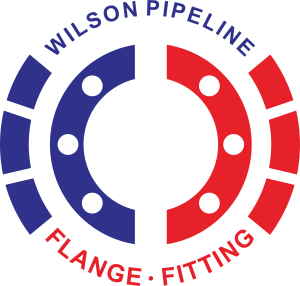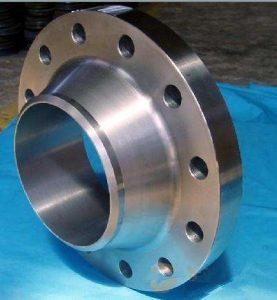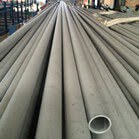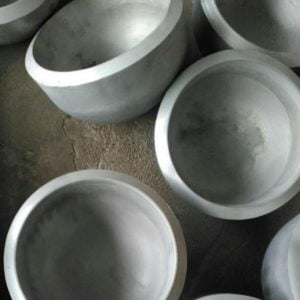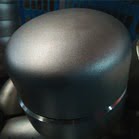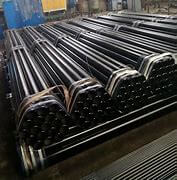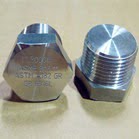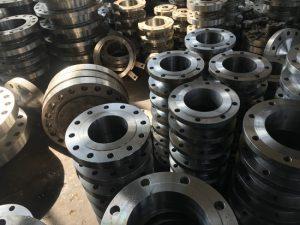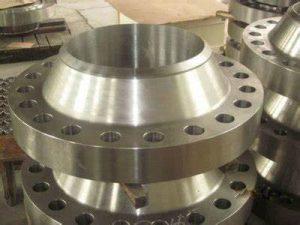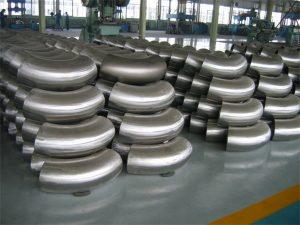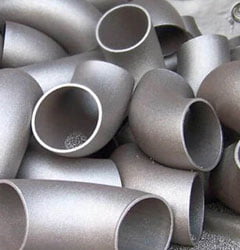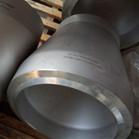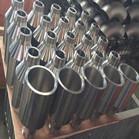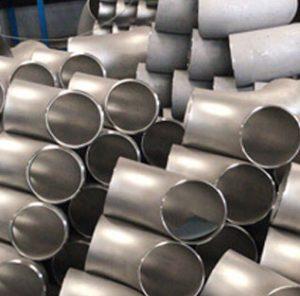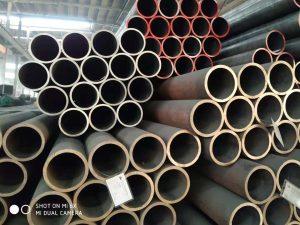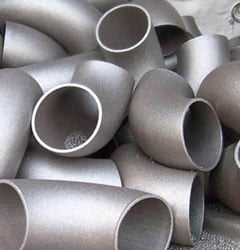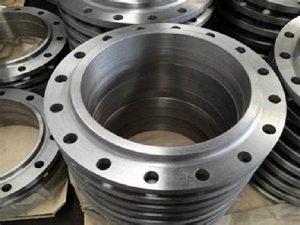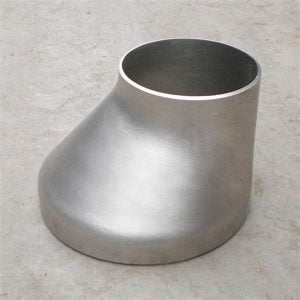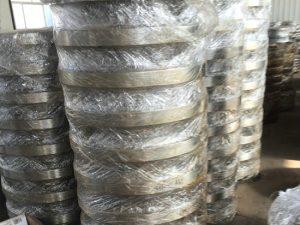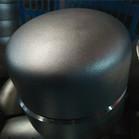What are the advantages of using Alloy 800 over other materials in high-temperature environments?
Alloy 800 (UNS N08800) is a nickel-iron-chromium alloy that is commonly used for high-temperature applications, particularly in the chemical and petrochemical industries. The material is also known as Incoloy 800.https://topsteelmill.com/index.php/product-category/nickel-alloy-series/The chemical composition of Alloy 800 includes nickel, chromium, iron, and small amounts of other elements such as copper, titanium, and aluminum. It offers excellent resistance to corrosion, oxidation, and high-temperature environments up to 1100°C (2010°F).Alloy 800 is commonly used in various industries, including chemical processing, oil and gas, and power generation. It is [...]
What are the advantages of using AMS 5766 over other materials?
AMS 5766 is a specification for a type of nickel-based superalloy material used in high-temperature applications, particularly in the aerospace and gas turbine industries. The material is also known as Inconel 718.The chemical composition of AMS 5766 includes nickel, chromium, iron, and small amounts of other elements such as molybdenum, niobium, and titanium. It offers excellent resistance to corrosion, oxidation, and high-temperature environments up to 704°C (1300°F).AMS 5766 is commonly used in various aerospace and gas turbine applications, including turbine blades, discs, and [...]
What are some other applications of N08020 in the food industry?
N08020 is a specification for a type of nickel-based alloy material, also known as Alloy 20 or Carpenter 20. It is a highly corrosion-resistant material that offers excellent resistance to a wide range of corrosive environments, including sulfuric acid, phosphoric acid, and other acidic solutions.The chemical composition of N08020 includes nickel, chromium, molybdenum, copper, and iron, with small amounts of other elements such as manganese and silicon. It offers excellent resistance to pitting, crevice corrosion, and stress corrosion cracking.N08020 is commonly used in [...]
What are some other applications of 310S stainless steel?
310S is a type of austenitic stainless steel that contains 25% chromium and 20% nickel, along with small amounts of other elements such as carbon, manganese, and silicon. It is a high-temperature material that is commonly used in applications that require resistance to high temperatures, such as furnace components, heat treatment equipment, and exhaust systems.Some properties of 310S stainless steel include:1. High temperature resistance: 310S stainless steel has excellent high-temperature resistance and can withstand temperatures up to 1150°C (2100°F) without significant loss of [...]
What are some other high-temperature resistant materials?
310S stainless steel is a versatile material that is used in a wide range of applications, in addition to high-temperature applications. Here are some examples of other applications of 310S stainless steel:1. Chemical processing: 310S stainless steel is commonly used in the chemical processing industry, where its resistance to corrosion makes it suitable for use in processing equipment, storage tanks, and piping systems.2. Food processing: 310S stainless steel is also used in the food processing industry, where its resistance to corrosion and ease [...]
What are the advantages of using nickel-based superalloys over other high-temperature resistant materials?
There are several high-temperature resistant materials that are commonly used in various industries, including:1. Tungsten: Tungsten is a refractory metal that has a very high melting point of 3,422°C (6,192°F) and excellent high-temperature strength and stability. It is commonly used in high-temperature applications, such as heating elements, furnace components, and electrical contacts.2. Molybdenum: Molybdenum is another refractory metal that has a high melting point of 2,623°C (4,753°F) and excellent high-temperature strength and stability. It is commonly used in high-temperature applications, such as furnace [...]
What are some other high-temperature resistant materials?
Nickel-based superalloys offer several advantages over other high-temperature resistant materials, including:1. High-temperature strength: Nickel-based superalloys have excellent high-temperature strength and can withstand temperatures up to 1000°C (1832°F) or higher without significant loss of strength or dimensional stability. This makes them suitable for use in demanding high-temperature applications, such as aerospace engines and power generation.2. Corrosion resistance: Nickel-based superalloys have excellent resistance to corrosion and oxidation in a wide range of harsh environments, including high-temperature and high-pressure environments. This makes them suitable for use [...]
How does A182F321 compare to other types of stainless steel?
A182F321 is a type of stainless steel that contains 18% chromium and 8% nickel, along with titanium and other elements. It is a heat-resistant material that is commonly used in applications that require high-temperature resistance, such as exhaust systems, furnace components, and heat exchangers.A182F321 flanges are flanges that are made from A182F321 stainless steel. They are used in piping systems to connect pipes, valves, and other equipment. A182F321 flanges are designed to be welded or bolted onto the end of a pipe or [...]
What are some other applications of A182 F91 low alloy steel?
A182 F91 is a grade of low alloy steel that is commonly used in high-temperature and high-pressure applications, such as power generation and chemical processing. It is a type of Cr-Mo alloy steel that contains chromium, molybdenum, and vanadium, which provides it with excellent strength and corrosion resistance properties.The chemical composition of A182 F91 low alloy steel includes:- Chromium(Cr): 8.0-9.5%- Molybdenum (Mo): 0.85-1.05%- Vanadium (V): 0.18-0.25%- Carbon (C): 0.08-0.12%- Silicon (Si): 0.20-0.50%- Manganese (Mn): 0.30-0.60%- Phosphorus (P): 0.020% max- Sulfur (S): 0.010% maxThe [...]
What are the benefits of using A182 F91 low alloy steel in nuclear applications?
There are several benefits of using A182 F91 low alloy steel in nuclear applications, including:1. High-temperature strength - A182 F91 low alloy steel has excellent high-temperature strength, which is critical in nuclear applications where components are exposed to high temperatures.2. Radiation resistance - A182 F91 low alloy steel is resistant to radiation-induced embrittlement, which is a common problem in nuclear applications. This means that it can maintain its mechanical properties even after prolonged exposure to radiation.3. Corrosion resistance - A182 F91 low alloy [...]
